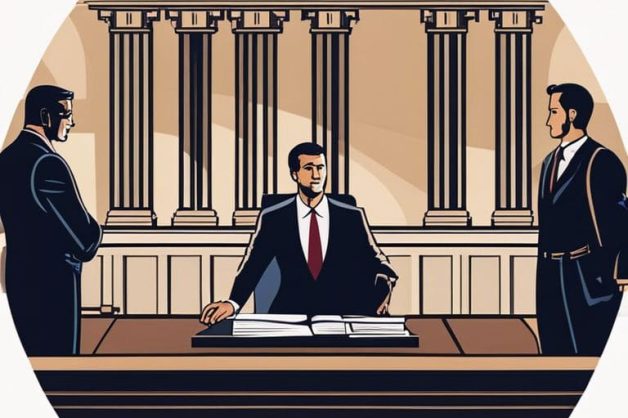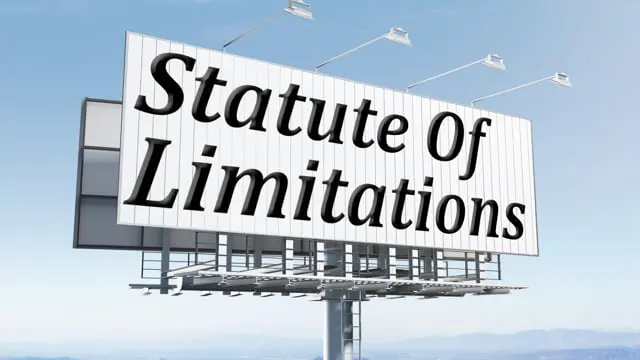Evidence laws are fundamental to the judicial system, governing the admissibility, handling, and presentation of evidence in legal proceedings. These laws ensure that the process of presenting evidence in court is fair, transparent, and reliable. This comprehensive guide explores the intricacies of evidence laws, highlighting key legal insights, courtroom procedures, and the impact on both civil and criminal cases.
The Importance of Evidence in Legal Proceedings
Evidence is the cornerstone of legal proceedings, providing the factual basis for arguments and decisions in both civil and criminal cases. The integrity and admissibility of evidence can significantly influence the outcome of a trial.
Types of Evidence
There are several types of evidence used in court, each serving a unique purpose:
- Physical Evidence: Tangible items such as weapons, documents, or clothing that can be examined by the court.
- Testimonial Evidence: Statements made by witnesses under oath, including eyewitness testimony y expert testimony.
- Documentary Evidence: Written or recorded evidence such as contracts, emails, or photographs.
- Demonstrative Evidence: Evidence that demonstrates or illustrates a point, such as maps, charts, or models.
Legal Standards for Evidence
The admissibility of evidence is governed by strict legal standards to ensure its reliability and relevance. Key standards include:
- Relevance: Evidence must be directly related to the facts of the case and capable of influencing the outcome.
- Competence: Evidence must be legally obtained and presented by competent individuals.
- Credibility: The source of the evidence must be credible, and the evidence must be reliable.
Legal Rights of Parties Involved
Both the prosecution and the defense have specific legal rights regarding evidence, designed to ensure a fair trial.
Right to Present Evidence
Both parties have the right to present evidence to support their case. This includes the ability to introduce physical evidence, call witnesses, and submit documentary evidence.
This right ensures that both sides have the opportunity to fully present their case to the court. It is fundamental to the adversarial system of justice, which relies on the presentation of competing evidence and arguments to arrive at the truth.
Right to Challenge Evidence
Both parties also have the right to challenge evidence presented by the opposing side. This includes the ability to cross-examine witnesses, object to the introduction of evidence, and request the exclusion of evidence that is irrelevant, prejudicial, or unlawfully obtained.
Challenging evidence is crucial for ensuring that only reliable and relevant evidence is considered by the court. It allows parties to question the validity of the evidence and the credibility of witnesses, helping to prevent wrongful convictions or unjust outcomes.
Courtroom Procedures for Evidence
Understanding the procedures for presenting and challenging evidence in court is essential for legal professionals and clients alike.
Discovery Process
En proceso de descubrimiento is a pre-trial phase where both parties exchange information and evidence. This process includes depositions, interrogatories, and requests for documents.
Discovery allows both sides to gather the evidence needed to build their case and prepare for trial. It also helps prevent surprises during the trial by ensuring that both parties have access to the same information.
Rules of Evidence
En rules of evidence govern how evidence is presented and handled in court. These rules vary by jurisdiction but generally cover issues such as relevance, hearsay, privilege, and the exclusion of prejudicial evidence.
Adhering to the rules of evidence is crucial for ensuring a fair trial. Legal professionals must be familiar with these rules to effectively present their case and challenge the evidence presented by the opposing side.
Admissibility of Evidence
The admissibility of evidence is a key consideration in legal proceedings. Evidence must meet specific criteria to be considered by the court.
Relevance and Materiality
For evidence to be admissible, it must be both relevant y material. Relevant evidence is directly related to the facts of the case, while material evidence has a significant impact on the outcome of the case.
Relevance and materiality ensure that the court considers only evidence that is directly related to the issues at hand. This helps to prevent confusion and ensures that the focus remains on the pertinent facts of the case.
Hearsay Rule
En hearsay rule generally prohibits the admission of out-of-court statements made by someone other than the witness testifying in court. There are, however, several exceptions to this rule, such as statements made under duress or during a medical emergency.
The hearsay rule aims to ensure that evidence presented in court is reliable and subject to cross-examination. Exceptions to the rule are narrowly defined to prevent the admission of unreliable evidence.
The Role of Expert Testimony
Expert testimony is a critical component of many legal cases, providing specialized knowledge that helps interpret complex evidence and inform the court’s understanding.
Qualifications of Expert Witnesses
Expert witnesses must possess the necessary qualifications, including education, experience, and professional credentials, to provide reliable testimony. Courts assess the qualifications of expert witnesses through a process known as voir dire.
During voir dire, the opposing attorney may question the expert witness to challenge their qualifications and expertise. The court ultimately decides whether the witness is qualified to provide expert testimony based on their knowledge, skill, and experience.
Impact of Expert Testimony
Expert testimony can significantly impact the outcome of a case by providing insights that are beyond the understanding of laypersons. Experts may testify on a wide range of topics, including forensic evidence, medical diagnoses, and technical analyses.
The credibility and reliability of expert testimony are crucial for its effectiveness. Courts evaluate the methodologies used by experts, the relevance of their findings, and their ability to communicate complex information clearly and accurately.
Handling Physical Evidence
The proper handling and preservation of physical evidence are essential for maintaining its integrity and admissibility in court.
Chain of Custody
En cadena de custodia refers to the documented process of handling and storing physical evidence. It ensures that evidence is not tampered with or contaminated.
Maintaining a clear chain of custody is crucial for the admissibility of physical evidence. Any breaks in the chain can raise questions about the integrity of the evidence and may result in its exclusion from the trial.
Preservation of Evidence
Proper preservation of evidence involves storing evidence in a manner that prevents degradation or contamination. This includes using appropriate containers, labeling evidence clearly, and limiting access to authorized personnel.
Preservation techniques vary depending on the type of evidence. For example, biological samples may require refrigeration, while digital evidence may need to be stored on secure servers.
Pruebas digitales
The rise of digital technology has introduced new challenges and opportunities in the realm of evidence. Digital evidence includes emails, social media posts, text messages, and data from electronic devices.
Admissibility of Digital Evidence
Digital evidence must meet the same standards of relevance, materiality, and reliability as traditional evidence. However, additional considerations, such as authenticity and integrity, are also important.
Courts often require digital evidence to be authenticated by an expert who can verify that the data has not been altered or tampered with. Ensuring the integrity of digital evidence involves using secure methods to collect, store, and transmit the data.
Challenges with Digital Evidence
Digital evidence can be easily manipulated, making its authenticity a critical concern. Additionally, the sheer volume of digital data can complicate the discovery process and require advanced tools for analysis and management.
Legal professionals must stay updated on the latest technologies and methodologies for handling digital evidence. This includes understanding issues such as metadata, encryption, and data recovery.
Implications of Mishandling Evidence
Mishandling evidence can have serious consequences, including the exclusion of evidence, adverse inferences, and potential legal penalties.
Exclusion of Evidence
Evidence that is improperly obtained, stored, or presented may be excluded from the trial. This can significantly weaken a party’s case and impact the overall outcome.
Exclusion can occur if the evidence is deemed irrelevant, prejudicial, or obtained in violation of legal standards. For example, evidence obtained without a proper warrant may be excluded under the exclusionary rule.
Adverse Inferences
Courts may draw adverse inferences if evidence is mishandled, suggesting that the evidence was intentionally altered or destroyed. This can undermine the credibility of the party responsible for the mishandling and negatively impact their case.
Adverse inferences can also occur if a party fails to produce evidence that is within their control. This suggests that the evidence would have been unfavorable to their case.
Sanciones legales
In some cases, mishandling evidence can result in legal penalties, including fines, sanctions, or criminal charges. This underscores the importance of adhering to proper procedures and maintaining the integrity of all evidence.
Legal penalties can be imposed for actions such as tampering with evidence, destroying evidence, or failing to comply with discovery orders. These penalties serve to protect the integrity of the judicial process and deter misconduct.
Casos prácticos o ejemplos
Examining real-life case studies can provide valuable insights into the application of evidence laws and the consequences of mishandling evidence.
Case Study: The O.J. Simpson Trial
En O.J. Simpson trial is one of the most famous cases involving the mishandling of evidence. During the trial, questions were raised about the collection, preservation, and testing of DNA evidence. Issues such as contamination, improper storage, and allegations of tampering significantly impacted the case’s outcome.
The O.J. Simpson trial highlighted the importance of maintaining a strict chain of custody and following proper procedures for handling evidence. It also demonstrated how questions about the integrity of evidence can undermine a case and influence public perception.
Case Study: The Casey Anthony Trial
In the Casey Anthony trial, forensic evidence played a crucial role. The defense successfully challenged the prosecution’s evidence, including the reliability of hair and air sample analysis. The case underscored the importance of using scientifically validated methods and properly trained experts.
The Casey Anthony trial also highlighted the challenges of presenting complex forensic evidence in a way that is understandable and persuasive to a jury. It demonstrated the need for clear communication and thorough validation of forensic techniques.
Análisis comparativo
Comparing evidence laws and procedures across different jurisdictions can provide a deeper understanding of their impact and effectiveness.
United States vs. United Kingdom
In the United States, the rules of evidence are governed by the Federal Rules of Evidence (FRE), which provide a comprehensive framework for the admissibility and handling of evidence in federal courts. Each state also has its own rules of evidence, which may vary slightly from the FRE.
In the United Kingdom, evidence laws are governed by the Criminal Procedure Rules y el Civil Procedure Rules. While there are similarities between the U.S. and U.K. systems, such as the importance of relevance and reliability, there are also key differences. For example, the U.K. has more stringent rules regarding hearsay evidence and a greater emphasis on pre-trial disclosure.
Desglose detallado de las consecuencias jurídicas
Understanding the legal consequences of mishandling evidence can help legal professionals and clients appreciate the importance of proper evidence management.
Criminal Penalties
Mishandling evidence can result in criminal penalties, including charges of perjury, obstruction of justicey evidence tampering. These charges carry serious consequences, including imprisonment, fines, and a permanent criminal record.
Perjury involves lying under oath, while obstruction of justice involves actions that interfere with the administration of justice. Evidence tampering includes altering, destroying, or concealing evidence with the intent to interfere with a legal proceeding.
Civil Penalties
In civil cases, mishandling evidence can result in sanctions, finesy adverse judgments. Courts may impose monetary penalties, dismiss claims, or issue default judgments against parties who fail to properly manage evidence.
Sanctions can also include orders to pay the opposing party’s legal fees or to comply with specific discovery requests. These penalties serve to enforce compliance with evidence rules and ensure a fair trial.
Tecnología y herramientas
The use of technology and advanced tools has transformed the handling and presentation of evidence in legal proceedings.
Forensic Analysis Tools
Advanced forensic analysis tools enable the examination of physical and digital evidence with greater accuracy and efficiency. Tools such as DNA sequencers, digital forensics software, and 3D modeling can provide detailed insights that were previously unattainable.
Forensic analysis tools must be properly validated and used by trained professionals to ensure reliable results. Courts often require expert testimony to explain the use and findings of these tools.
Evidence Management Software
Evidence management software helps legal professionals track, store, and manage evidence throughout the legal process. These systems ensure a clear chain of custody, secure storage, and easy access to evidence.
Evidence management software can also streamline the discovery process by allowing for the efficient organization and sharing of digital evidence. These tools support compliance with evidence rules and enhance the overall effectiveness of legal proceedings.
Cambios y tendencias legislativas
Legislative changes and emerging trends can significantly impact evidence laws and their application in legal proceedings.
Legislative Reforms
Recent legislative reforms have focused on enhancing the reliability and transparency of evidence. For example, the Justice for All Act in the United States aims to improve the accuracy and accessibility of forensic evidence, particularly in criminal cases.
Legislative reforms often address issues such as the validation of forensic techniques, the rights of defendants to access evidence, and the standards for expert testimony. These changes reflect ongoing efforts to ensure that evidence laws keep pace with advancements in technology and scientific understanding.
Emerging Trends
Emerging trends in evidence law include the increasing use of pruebas digitales, the development of new forensic techniques, and the growing importance of data privacy y security.
Digital evidence, such as emails, social media posts, and electronic records, is becoming more prevalent in legal proceedings. New forensic techniques, such as advanced DNA analysis and digital forensics, are providing deeper insights into evidence. Data privacy and security concerns are driving changes in how evidence is collected, stored, and shared.
Consideraciones éticas
Ethical considerations are paramount in the handling and presentation of evidence. Legal professionals must adhere to strict ethical standards to ensure fairness and integrity in the judicial process.
Professional Responsibility
Legal professionals have a professional responsibility to handle evidence ethically and in accordance with the law. This includes avoiding actions that could compromise the integrity of evidence, such as tampering, destruction, or misrepresentation.
Ethical conduct requires honesty, transparency, and diligence in managing evidence. Legal professionals must also respect the rights of parties involved, including the right to a fair trial and the right to privacy.
Conflict of Interest
Conflictos de intereses can arise when legal professionals have a personal or financial stake in the outcome of a case. It is essential to disclose and address any potential conflicts to maintain the integrity of the judicial process.
Managing conflicts of interest involves ensuring that decisions are made impartially and that all parties are treated fairly. Legal professionals must avoid actions that could be perceived as biased or self-serving.
Conclusión
Understanding evidence laws and the legal rights and responsibilities of parties involved is crucial for ensuring the integrity and fairness of the judicial process. By adhering to legal standards, presenting reliable evidence, and challenging questionable evidence, legal professionals and clients can contribute to the pursuit of justice.
This comprehensive guide highlights the importance of evidence in both civil and criminal cases, providing valuable insights for legal professionals and individuals navigating the complexities of the legal system. By staying informed about evidence laws and courtroom procedures, parties can confidently participate in legal proceedings and help achieve fair and just outcomes.
Attorneys.Media Video Document References
- Is Personal Injury Part of Your Law Practice?
- As an Attorney, How Are You Generating Content for Your Online Presence?
- How Can You Help Potential New Clients Get Their Questions Answered?
- How Do You Differentiate Yourself When Someone Looks Online for Help?
- How Do You Differentiate Yourself as a Criminal Defense Attorney?
- Have You Been Thinking About Video Marketing for Your Law Firm?
- Should Attorneys Use Video Marketing to Attract New Clients?
- What Do Potential Clients See When They Research Your Name Online?
- Cómo puede ayudarle Attorneys.Media








